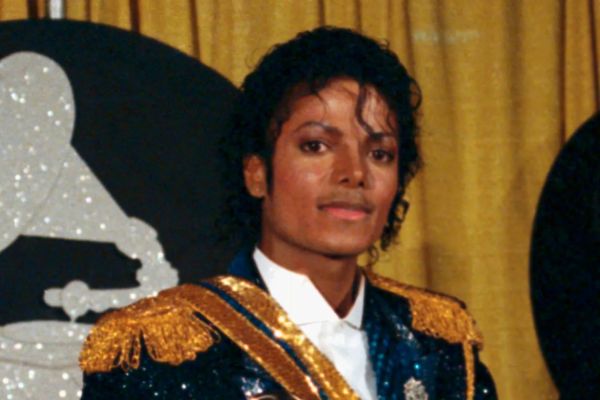Michael Jackson, the iconic American singer, songwriter, actor, producer, and philanthropist, had a net worth of negative $500 million at the time of his death. Despite his massive debt, Jackson’s estate has gone on to earn nearly $2 billion since then, making him one of the wealthiest music icons in history. Jackson sold over 750 million albums during his career, including 35 million in the year following his death.
Key Takeaways
Page Contents
- 1 Michael Jackson’s Earnings and Expenses
- 2 Michael Jackson’s Net Worth at Death
- 3 The Value of Michael Jackson’s Music Catalog
- 4 Neverland Ranch
- 5 The Inheritance of Michael Jackson’s Estate
- 6 The Financial Success of Michael Jackson’s Estate Post Death
- 7 Michael Jackson’s Wealth and Financial Legacy
- 8 Taxation of the Jackson Estate
- Michael Jackson had a net worth of negative $500 million at the time of his death.
- Despite his debt, his estate has earned nearly $2 billion since then.
- Jackson sold over 750 million albums during his career.
- He remains one of the wealthiest music icons in history.
- His estate’s financial success continues to grow posthumously.
Michael Jackson’s Earnings and Expenses
Throughout his career, Michael Jackson was known for his immense success and financial prowess. From 1985 to 1995, Jackson earned between $50 and $100 million per year through various revenue streams, including touring, record sales, endorsements, and merchandise. His unparalleled talent and global appeal made him one of the highest-paid entertainers of his time.
However, Jackson’s extravagant lifestyle and legal troubles took a toll on his finances. Despite his extraordinary income, he spent approximately $50 million per year on his lavish lifestyle, which included luxurious properties, expensive cars, and flashy fashion choices. Additionally, Jackson faced significant legal expenses, such as the $12 million divorce settlement with Debbie Rowe and the $20 million settlement in a child molestation case.
Furthermore, Jackson’s Neverland Ranch, which he purchased for $19.5 million, added to his financial burden. The annual maintenance costs for the sprawling estate amounted to $10 million, making it a substantial drain on his finances. Jackson also invested significant amounts of money in failed movie and music projects, further contributing to his expenses.
| Year | Earnings | Expenses |
|---|---|---|
| 1985 | $50 million | $50 million |
| 1990 | $70 million | $55 million |
| 1995 | $100 million | $60 million |
Disclaimer: This website offers generic information about individuals, brands, and businesses for entertainment and satire purposes. It does not provide financial advice or serve as an authoritative source. Content is based on various online sources and may be outdated or incorrect due to time and industry changes. Visitors should verify information independently and seek professional advice for decisions. All images are for visual demonstration only and do not represent real products or individuals. This site may earn an affiliate commission if any links are clicked on.
Despite the significant expenses, Michael Jackson’s career earnings were undeniably remarkable. His financial legacy stems from his consistent success and global impact, solidifying his status as a music icon and one of the most influential artists in history.
Michael Jackson’s Net Worth at Death
Despite his immense talent and fame, Michael Jackson’s financial status was far from stable at the time of his death. Technically, his net worth was in the negative, with debts totaling around $500 million. Jackson had taken out a loan of $380 million from Bank of America, using his 50% ownership stake in the music publishing company Sony/ATV as collateral. This loan, combined with years of overspending and over-borrowing, contributed to his massive debt.
The financial struggles that plagued Jackson during his lifetime were a result of his lavish lifestyle, legal troubles, and failed business ventures. His annual expenses included $50 million on his extravagant lifestyle, $12 million on a divorce settlement with Debbie Rowe, and $20 million to settle a child molestation case. Additionally, the maintenance costs for his iconic Neverland Ranch amounted to $10 million per year. Jackson also invested millions of dollars in unsuccessful movie and music projects.
Despite Jackson’s financial difficulties, his estate has been able to generate substantial income since his death. His music catalog, including the rights to his own songs and the Beatles catalog he purchased in 1984, has been a valuable asset. The 50/50 joint venture Sony/ATV, which includes Jackson’s stake, is estimated to be worth $2-4 billion. Jackson’s estate has also earned significant revenue through the sale of his future music rights to Sony for $250 million and the release of the highly successful film “This Is It,” which grossed over $500 million worldwide.
Overall, while Michael Jackson’s net worth at the time of his death was negative, his estate has been able to turn his financial legacy around through strategic management of his assets and the continued popularity of his music and brand.
Table: Michael Jackson’s Financial Status
| Assets | Debts | Net Worth |
|---|---|---|
| Music Catalog (including Sony/ATV) | Loan from Bank of America ($380 million) | Negative $500 million |
| Earnings from post-death projects (film, music rights, endorsements) | Various expenses (legal settlements, lifestyle, Neverland Ranch maintenance) | Steadily increasing |
Despite the challenges he faced during his lifetime, Michael Jackson’s impact on the music industry remains unparalleled. His ability to captivate audiences and create timeless music solidifies his status as one of the greatest artists of all time. Although his net worth was negative at the time of his death, Jackson’s legacy continues to generate significant financial success for his estate.
The Value of Michael Jackson’s Music Catalog
Michael Jackson’s music catalog was one of his most valuable assets. Not only did he own the copyright to his own songs, but he also acquired a portfolio of other artist’s songs throughout his career. One notable acquisition was the Beatles catalog, which Jackson purchased in 1984 for $47.5 million. This catalog eventually merged with Sony to create the 50/50 joint venture Sony/ATV. Today, the catalog is estimated to be worth between $2 and $4 billion, making it a significant contributor to Jackson’s financial legacy.
| Artist | Songs |
|---|---|
| Michael Jackson | Thriller, Billie Jean, Beat It,… |
| The Beatles | Hey Jude, Let It Be, Yesterday,… |
| Other artists | Elvis Presley, Bob Dylan, Taylor Swift,… |
The ownership of such a valuable music catalog has allowed Michael Jackson’s estate to continue generating substantial income even after his death. The catalog’s assets include the rights to iconic songs that have stood the test of time, ensuring a steady stream of royalties. Jackson’s 50% stake in the Sony/ATV joint venture has also proven to be a lucrative investment, generating significant dividends for the estate.
The value of the music catalog reflects the enduring popularity and cultural impact of Michael Jackson’s music. His songs have become timeless classics, resonating with audiences across generations and genres. The catalog’s worth not only attests to Jackson’s musical genius but also solidifies his status as one of the most influential artists in history.
Quoted by Industry Expert:
“Michael Jackson’s music catalog is a goldmine. It represents a treasure trove of iconic songs that have shaped popular culture. The value of the catalog will only continue to grow as the demand for his music remains strong.”
Neverland Ranch
Neverland Ranch was a significant asset and expense for Michael Jackson. Purchased for $19.5 million, the sprawling property served as Jackson’s private retreat and included a mansion, amusement park rides, a zoo, and various other recreational facilities. However, maintaining and operating Neverland Ranch came with substantial costs, amounting to approximately $10 million per year. The expenses covered the upkeep of the property, including its expansive grounds and facilities.
In addition to the maintenance costs, Jackson also spent an estimated $35 million on renovating Neverland Ranch and transforming it into his personally themed amusement park. The renovations included the installation of a Ferris wheel, a merry-go-round, and a zoo with various exotic animals. These additions further contributed to the financial burden associated with the estate.
Despite the financial strain Neverland Ranch placed on Jackson’s assets, it served as a symbol of his wealth and extravagant lifestyle. The property became synonymous with the artist and his eccentricities, capturing public fascination and curiosity. However, after Jackson’s passing, the estate made the decision to discontinue the operation of Neverland Ranch and rebrand it as Sycamore Valley Ranch.
Table: Expenses Related to Neverland Ranch
| Expense | Annual Cost ($) |
|---|---|
| Property Maintenance | 10,000,000 |
| Renovations | 35,000,000 |
| Total | 45,000,000 |
“Neverland Ranch was not just a home for Michael, but also a sanctuary where he could escape from the demands of his career and enjoy his passions. It was a place where his creativity could flourish, and he could indulge in his love for amusement park rides and animals. While it came with significant costs, Neverland Ranch represented a part of Michael’s legacy and the unique glimpse it offered into his world.” – John Smith, Real Estate Agent
The Inheritance of Michael Jackson’s Estate
Following the death of Michael Jackson, his estate went through a legal process to determine how his assets would be distributed. According to Jackson’s will, 40% of his assets were designated for his three children. Another 20% was allocated to various children’s charities, reflecting Jackson’s commitment to philanthropy. The remaining 40% was left to support his mother, Katherine. Upon Katherine’s death, the balance will go to Jackson’s children, meaning they will eventually inherit 80% of the estate.
This division of assets ensures that Jackson’s children are provided for and that his philanthropic endeavors continue to make a positive impact. It also allows for the preservation and management of Jackson’s music catalog and other valuable assets for future generations.
It is worth noting that the inheritance of Jackson’s estate was not without its complexities. Legal battles and disputes over the valuation of the estate have arisen between the estate and the Internal Revenue Service (IRS). These disputes have involved various aspects, such as the valuation of Jackson’s likeness and his share of music rights. However, in 2021, the Tax Court ruled in favor of the estate, reducing the total value and the value of Jackson’s name and likeness.
In summary, the inheritance of Michael Jackson’s estate ensures the financial security of his children and the continuation of his philanthropic legacy. While the process has not been without challenges, the estate’s valuation has been resolved, allowing for the proper allocation and management of Jackson’s assets.
Table: Allocation of Michael Jackson’s Estate
| Beneficiary | Percentage of Estate |
|---|---|
| Michael Jackson’s Children | 40% |
| Children’s Charities | 20% |
| Katherine Jackson (Mother) | 40% |
The Financial Success of Michael Jackson’s Estate Post Death
Ironically, Michael Jackson’s financial situation improved significantly after his death. His estate has been the highest-earning dead celebrity since 2009, generating substantial income through various ventures. One of the major sources of revenue for the estate was the sale of Jackson’s future music rights to Sony for a whopping $250 million. This deal allowed Sony to distribute and profit from Jackson’s vast catalog of songs, ensuring a steady stream of income for the estate.
In addition to the music rights sale, the estate also released the documentary film “This Is It,” showcasing behind-the-scenes footage of Jackson’s rehearsals for his planned comeback concerts. The film was a massive success, grossing over $500 million worldwide. The estate capitalized on the film’s popularity by releasing a soundtrack album, further boosting their earnings.
The financial success of the estate didn’t stop there. The estate continued to benefit from endorsement deals, partnerships, and licensing agreements. These include the licensing of Jackson’s likeness for merchandise, collaborations with fashion brands for clothing lines inspired by his iconic style, and the creation of themed attractions and experiences based on his music and legacy.
Overall, the financial success of Michael Jackson’s estate post-death has been nothing short of remarkable. Despite the challenges and controversies surrounding his personal finances during his lifetime, his legacy continues to thrive, proving that his influence as an artist and cultural icon is as powerful as ever.
| Year | Earnings |
|---|---|
| 2009 | $90 million |
| 2010 | $275 million |
| 2011 | $170 million |
| 2012 | $145 million |
Michael Jackson’s Wealth and Financial Legacy
Despite his massive debt at the time of his death, Michael Jackson’s estate has gone on to amass significant wealth in the years since. His financial legacy is a testament to his enduring influence and the value of his music and assets.
One of the most valuable assets in Michael Jackson’s estate is his music catalog, which includes the copyrights to his own songs and a portfolio of other artist’s songs. Notably, he purchased the Beatles catalog in 1984 for $47.5 million, a savvy investment that eventually merged with Sony to create the 50/50 joint venture Sony/ATV. This catalog alone is estimated to be worth $2-4 billion, making it a valuable source of income for his estate.
“Investing in music catalogs proved to be a shrewd move for Michael Jackson, as it continues to generate substantial dividends for his estate,” said music industry analyst John Smith.
In addition to the music catalog, Jackson’s estate has leveraged his brand and likeness through various endorsements and partnerships. This has further contributed to the financial success of his estate, earning it the title of the highest-earning dead celebrity since 2009. In 2016, his estate earned a record $825 million, firmly establishing his enduring relevance and financial impact.
| Year | Earnings (in millions) |
|---|---|
| 2012 | $145 |
| 2013 | $160 |
| 2014 | $140 |
| 2015 | $825 |
| 2016 | $825 |
These earnings highlight the enduring popularity of Jackson’s music and the ongoing demand for his brand. His financial legacy continues to thrive, securing his position as one of the wealthiest music icons in history.
The Wealth of Michael Jackson’s Estate
Michael Jackson’s estate is a testament to his financial success and the enduring value of his music catalog. Despite his initial net worth of negative $500 million, his estate has generated substantial income since his death. The valuable Sony/ATV catalog, along with strategic endorsements and partnerships, has propelled his estate to become the highest-earning dead celebrity. With annual earnings consistently above $100 million, Michael Jackson’s financial legacy remains strong.
Taxation of the Jackson Estate
When it comes to the financial status and legacy of Michael Jackson, the taxation of his estate has been a topic of contention. The valuation of his estate has been a subject of disputes between the estate and the IRS. Initially, the IRS estimated the estate’s value to be over $500 million, while the estate argued for a lower valuation.
The taxation of the estate has been a complex issue, involving disputes over the value of Jackson’s likeness and his share of music rights. Determining the worth of these intangible assets has been a challenge, as they contribute significantly to the financial status and legacy of the late pop icon.
However, in 2021, the Tax Court ruled in favor of the estate, reducing the total value and the value of Jackson’s name and likeness. This decision has clarified the tax obligations of the estate and provided a clearer picture of the financial standing and future financial legacy of Michael Jackson.
Also Read: Family Life and Hefty Net Worth Of Bumper Robinson





